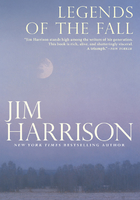My journeys as Uncommercial Traveller for the firm of Human-Interest Brothers have not slackened since I last reported of them, but have kept me continually on the move. I remain in the same idle employment. I never solicit an order, I never get any commission, I am the rolling stone that gathers no moss,-unless any should by chance be found among these samples.
Some half a year ago, I found myself in my idlest, dreamiest, and least accountable condition altogether, on board ship, in the harbour of the city of New York, in the United States of America. Of all the good ships afloat, mine was the good steamship 'RUSSIA,' CAPT. COOK, Cunard Line, bound for Liverpool. What more could I wish for?
I had nothing to wish for but a prosperous passage. My salad-days, when I was green of visage and sea-sick, being gone with better things (and no worse), no coming event cast its shadow before.
I might but a few moments previously have imitated Sterne, and said, '"And yet, methinks, Eugenius,"-laying my forefinger wistfully on his coat-sleeve, thus,-"and yet, methinks, Eugenius, 'tis but sorry work to part with thee, for what fresh fields,…my dear Eugenius,…can be fresher than thou art, and in what pastures new shall I find Eliza, or call her, Eugenius, if thou wilt, Annie?"'-I say I might have done this; but Eugenius was gone, and I hadn't done it.
I was resting on a skylight on the hurricane-deck, watching the working of the ship very slowly about, that she might head for England. It was high noon on a most brilliant day in April, and the beautiful bay was glorious and glowing. Full many a time, on shore there, had I seen the snow come down, down, down (itself like down), until it lay deep in all the ways of men, and particularly, as it seemed, in my way, for I had not gone dry-shod many hours for months. Within two or three days last past had I watched the feathery fall setting in with the ardour of a new idea, instead of dragging at the skirts of a worn-out winter, and permitting glimpses of a fresh young spring. But a bright sun and a clear sky had melted the snow in the great crucible of nature; and it had been poured out again that morning over sea and land, transformed into myriads of gold and silver sparkles.
The ship was fragrant with flowers. Something of the old Mexican passion for flowers may have gradually passed into North America, where flowers are luxuriously grown, and tastefully combined in the richest profusion; but, be that as it may, such gorgeous farewells in flowers had come on board, that the small officer's cabin on deck, which I tenanted, bloomed over into the adjacent scuppers, and banks of other flowers that it couldn't hold made a garden of the unoccupied tables in the passengers' saloon. These delicious scents of the shore, mingling with the fresh airs of the sea, made the atmosphere a dreamy, an enchanting one. And so, with the watch aloft setting all the sails, and with the screw below revolving at a mighty rate, and occasionally giving the ship an angry shake for resisting, I fell into my idlest ways, and lost myself.
As, for instance, whether it was I lying there, or some other entity even more mysterious, was a matter I was far too lazy to look into. What did it signify to me if it were I? or to the more mysterious entity, if it were he? Equally as to the remembrances that drowsily floated by me, or by him, why ask when or where the things happened? Was it not enough that they befell at some time, somewhere?
There was that assisting at the church service on board another steamship, one Sunday, in a stiff breeze. Perhaps on the passage out. No matter. Pleasant to hear the ship's bells go as like church-bells as they could; pleasant to see the watch off duty mustered and come in: best hats, best Guernseys, washed hands and faces, smoothed heads. But then arose a set of circumstances so rampantly comical, that no check which the gravest intentions could put upon them would hold them in hand. Thus the scene. Some seventy passengers assembled at the saloon tables. Prayer-books on tables. Ship rolling heavily. Pause. No minister. Rumour has related that a modest young clergyman on board has responded to the captain's request that he will officiate. Pause again, and very heavy rolling.
Closed double doors suddenly burst open, and two strong stewards skate in, supporting minister between them. General appearance as of somebody picked up drunk and incapable, and under conveyance to station-house. Stoppage, pause, and particularly heavy rolling. Stewards watch their opportunity, and balance themselves, but cannot balance minister; who, struggling with a drooping head and a backward tendency, seems determined to return below, while they are as determined that he shall be got to the reading-desk in mid-saloon. Desk portable, sliding away down a long table, and aiming itself at the breasts of various members of the congregation. Here the double doors, which have been carefully closed by other stewards, fly open again, and worldly passenger tumbles in, seemingly with pale-ale designs: who, seeking friend, says 'Joe!' Perceiving incongruity, says, 'Hullo! Beg yer pardon!' and tumbles out again. All this time the congregation have been breaking up into sects,-as the manner of congregations often is, each sect sliding away by itself, and all pounding the weakest sect which slid first into the corner. Utmost point of dissent soon attained in every corner, and violent rolling. Stewards at length make a dash; conduct minister to the mast in the centre of the saloon, which he embraces with both arms; skate out; and leave him in that condition to arrange affairs with flock.
There was another Sunday, when an officer of the ship read the service. It was quiet and impressive, until we fell upon the dangerous and perfectly unnecessary experiment of striking up a hymn. After it was given out, we all rose, but everybody left it to somebody else to begin. Silence resulting, the officer (no singer himself) rather reproachfully gave us the first line again, upon which a rosy pippin of an old gentleman, remarkable throughout the passage for his cheerful politeness, gave a little stamp with his boot (as if he were leading off a country dance), and blithely warbled us into a show of joining. At the end of the first verse we became, through these tactics, so much refreshed and encouraged, that none of us, howsoever unmelodious, would submit to be left out of the second verse; while as to the third we lifted up our voices in a sacred howl that left it doubtful whether we were the more boastful of the sentiments we united in professing, or of professing them with a most discordant defiance of time and tune.
'Lord bless us!' thought I, when the fresh remembrance of these things made me laugh heartily alone in the dead water-gurgling waste of the night, what time I was wedged into my berth by a wooden bar, or I must have rolled out of it, 'what errand was I then upon, and to what Abyssinian point had public events then marched? No matter as to me. And as to them, if the wonderful popular rage for a plaything (utterly confounding in its inscrutable unreason) I had not then lighted on a poor young savage boy, and a poor old screw of a horse, and hauled the first off by the hair of his princely head to "inspect" the British volunteers, and hauled the second off by the hair of his equine tail to the Crystal Palace, why so much the better for all of us outside Bedlam!'
So, sticking to the ship, I was at the trouble of asking myself would I like to show the grog distribution in 'the fiddle' at noon to the Grand United Amalgamated Total Abstinence Society? Yes, I think I should. I think it would do them good to smell the rum, under the circumstances. Over the grog, mixed in a bucket, presides the boatswain's mate, small tin can in hand. Enter the crew, the guilty consumers, the grown-up brood of Giant Despair, in contradistinction to the band of youthful angel Hope. Some in boots, some in leggings, some in tarpaulin overalls, some in frocks, some in pea-coats, a very few in jackets, most with sou'wester hats, all with something rough and rugged round the throat; all, dripping salt water where they stand; all pelted by weather, besmeared with grease, and blackened by the sooty rigging.
Each man's knife in its sheath in his girdle, loosened for dinner. As the first man, with a knowingly kindled eye, watches the filling of the poisoned chalice (truly but a very small tin mug, to be prosaic), and, tossing back his head, tosses the contents into himself, and passes the empty chalice and passes on, so the second man with an anticipatory wipe of his mouth on sleeve or handkerchief, bides his turn, and drinks and hands and passes on, in whom, and in each as his turn approaches, beams a knowingly kindled eye, a brighter temper, and a suddenly awakened tendency to be jocose with some shipmate. Nor do I even observe that the man in charge of the ship's lamps, who in right of his office has a double allowance of poisoned chalices, seems thereby vastly degraded, even though he empties the chalices into himself, one after the other, much as if he were delivering their contents at some absorbent establishment in which he had no personal interest. But vastly comforted, I note them all to be, on deck presently, even to the circulation of redder blood in their cold blue knuckles; and when I look up at them lying out on the yards, and holding on for life among the beating sails, I cannot for my life see the justice of visiting on them-or on me-the drunken crimes of any number of criminals arraigned at the heaviest of assizes.
Abetting myself in my idle humour, I closed my eyes, and recalled life on board of one of those mail-packets, as I lay, part of that day, in the Bay of New York, O! The regular life began-mine always did, for I never got to sleep afterwards-with the rigging of the pump while it was yet dark, and washing down of decks. Any enormous giant at a prodigious hydropathic establishment, conscientiously undergoing the water-cure in all its departments, and extremely particular about cleaning his teeth, would make those noises. Swash, splash, scrub, rub, toothbrush, bubble, swash, splash, bubble, toothbrush, splash, splash, bubble, rub. Then the day would break, and, descending from my berth by a graceful ladder composed of half-opened drawers beneath it, I would reopen my outer dead-light and my inner sliding window (closed by a watchman during the water-cure), and would look out at the long-rolling, lead-coloured, white topped waves over which the dawn, on a cold winter morning, cast a level, lonely glance, and through which the ship fought her melancholy way at a terrific rate. And now, lying down again, awaiting the season for broiled ham and tea, I would be compelled to listen to the voice of conscience,-the screw.
It might be, in some cases, no more than the voice of stomach; but I called it in my fancy by the higher name. Because it seemed to me that we were all of us, all day long, endeavouring to stifle the voice. Because it was under everybody's pillow, everybody's plate, everybody's camp-stool, everybody's book, everybody's occupation. Because we pretended not to hear it, especially at meal-times, evening whist, and morning conversation on deck; but it was always among us in an under monotone, not to be drowned in pea-soup, not to be shuffled with cards, not to be diverted by books, not to be knitted into any pattern, not to be walked away from. It was smoked in the weediest cigar, and drunk in the strongest cocktail; it was conveyed on deck at noon with limp ladies, who lay there in their wrappers until the stars shone; it waited at table with the stewards; nobody could put it out with the lights. It was considered (as on shore) ill-bred to acknowledge the voice of conscience. It was not polite to mention it. One squally day an amiable gentleman in love gave much offence to a surrounding circle, including the object of his attachment, by saying of it, after it had goaded him over two easy-chairs and a skylight, 'Screw!'
Sometimes it would appear subdued. In fleeting moments, when bubbles of champagne pervaded the nose, or when there was 'hot pot' in the bill of fare, or when an old dish we had had regularly every day was described in that official document by a new name,-under such excitements, one would almost believe it hushed. The ceremony of washing plates on deck, performed after every meal by a circle as of ringers of crockery triple-bob majors for a prize, would keep it down. Hauling the reel, taking the sun at noon, posting the twenty-four hours' run, altering the ship's time by the meridian, casting the waste food overboard, and attracting the eager gulls that followed in our wake,-these events would suppress it for a while. But the instant any break or pause took place in any such diversion, the voice would be at it again, importuning us to the last extent. A newly married young pair, who walked the deck affectionately some twenty miles per day, would, in the full flush of their exercise, suddenly become stricken by it, and stand trembling, but otherwise immovable, under its reproaches.
When this terrible monitor was most severe with us was when the time approached for our retiring to our dens for the night; when the lighted candles in the saloon grew fewer and fewer; when the deserted glasses with spoons in them grew more and more numerous; when waifs of toasted cheese and strays of sardines fried in batter slid languidly to and fro in the table-racks; when the man who always read had shut up his book, and blown out his candle; when the man who always talked had ceased from troubling; when the man who was always medically reported as going to have delirium tremens had put it off till to-morrow; when the man who every night devoted himself to a midnight smoke on deck two hours in length, and who every night was in bed within ten minutes afterwards, was buttoning himself up in his third coat for his hardy vigil: for then, as we fell off one by one, and, entering our several hutches, came into a peculiar atmosphere of bilge-water and Windsor soap, the voice would shake us to the centre. Woe to us when we sat down on our sofa, watching the swinging candle for ever trying and retrying to stand upon his head! or our coat upon its peg, imitating us as we appeared in our gymnastic days by sustaining itself horizontally from the wall, in emulation of the lighter and more facile towels! Then would the voice especially claim us for its prey, and rend us all to pieces.
Lights out, we in our berths, and the wind rising, the voice grows angrier and deeper. Under the mattress and under the pillow, under the sofa and under the washing-stand, under the ship and under the sea, seeming to rise from the foundations under the earth with every scoop of the great Atlantic (and oh! why scoop so?), always the voice. Vain to deny its existence in the night season; impossible to be hard of hearing; screw, screw, screw! Sometimes it lifts out of the water, and revolves with a whirr, like a ferocious firework,-except that it never expends itself, but is always ready to go off again; sometimes it seems to be in anguish, and shivers; sometimes it seems to be terrified by its last plunge, and has a fit which causes it to struggle, quiver, and for an instant stop. And now the ship sets in rolling, as only ships so fiercely screwed through time and space, day and night, fair weather and foul, can roll.
Did she ever take a roll before like that last? Did she ever take a roll before like this worse one that is coming now? Here is the partition at my ear down in the deep on the lee side. Are we ever coming up again together? I think not; the partition and I are so long about it that I really do believe we have overdone it this time. Heavens, what a scoop! What a deep scoop, what a hollow scoop, what a long scoop! Will it ever end, and can we bear the heavy mass of water we have taken on board, and which has let loose all the table furniture in the officers' mess, and has beaten open the door of the little passage between the purser and me, and is swashing about, even there and even here? The purser snores reassuringly, and the ship's bells striking, I hear the cheerful 'All's well!' of the watch musically given back the length of the deck, as the lately diving partition, now high in air, tries (unsoftened by what we have gone through together) to force me out of bed and berth.
'All's well!' Comforting to know, though surely all might be better. Put aside the rolling and the rush of water, and think of darting through such darkness with such velocity. Think of any other similar object coming in the opposite direction!
Whether there may be an attraction in two such moving bodies out at sea, which may help accident to bring them into collision? Thoughts, too, arise (the voice never silent all the while, but marvellously suggestive) of the gulf below; of the strange, unfruitful mountain ranges and deep valleys over which we are passing; of monstrous fish midway; of the ship's suddenly altering her course on her own account, and with a wild plunge settling down, and making that voyage with a crew of dead discoverers. Now, too, one recalls an almost universal tendency on the part of passengers to stumble, at some time or other in the day, on the topic of a certain large steamer making this same run, which was lost at sea, and never heard of more. Everybody has seemed under a spell, compelling approach to the threshold of the grim subject, stoppage, discomfiture, and pretence of never having been near it. The boatswain's whistle sounds! A change in the wind, hoarse orders issuing, and the watch very busy. Sails come crashing home overhead, ropes (that seem all knot) ditto; every man engaged appears to have twenty feet, with twenty times the average amount of stamping power in each. Gradually the noise slackens, the hoarse cries die away, the boatswain's whistle softens into the soothing and contented notes, which rather reluctantly admit that the job is done for the time, and the voice sets in again.
Thus come unintelligible dreams of up hill and down, and swinging and swaying, until consciousness revives of atmospherical Windsor soap and bilge-water, and the voice announces that the giant has come for the water-cure again.
Such were my fanciful reminiscences as I lay, part of that day, in the Bay of New York, O! Also as we passed clear of the Narrows, and got out to sea; also in many an idle hour at sea in sunny weather! At length the observations and computations showed that we should make the coast of Ireland to-night. So I stood watch on deck all night to-night, to see how we made the coast of Ireland.
Very dark, and the sea most brilliantly phosphorescent. Great way on the ship, and double look-out kept. Vigilant captain on the bridge, vigilant first officer looking over the port side, vigilant second officer standing by the quarter-master at the compass, vigilant third officer posted at the stern rail with a lantern. No passengers on the quiet decks, but expectation everywhere nevertheless. The two men at the wheel very steady, very serious, and very prompt to answer orders. An order issued sharply now and then, and echoed back; otherwise the night drags slowly, silently, with no change.
All of a sudden, at the blank hour of two in the morning, a vague movement of relief from a long strain expresses itself in all hands; the third officer's lantern tinkles, and he fires a rocket, and another rocket. A sullen solitary light is pointed out to me in the black sky yonder. A change is expected in the light, but none takes place. 'Give them two more rockets, Mr. Vigilant.' Two more, and a blue-light burnt. All eyes watch the light again. At last a little toy sky-rocket is flashed up from it; and, even as that small streak in the darkness dies away, we are telegraphed to Queenstown, Liverpool, and London, and back again under the ocean to America.
Then up come the half-dozen passengers who are going ashore at Queenstown and up comes the mail-agent in charge of the bags, and up come the men who are to carry the bags into the mail-tender that will come off for them out of the harbour. Lamps and lanterns gleam here and there about the decks, and impeding bulks are knocked away with handspikes; and the port-side bulwark, barren but a moment ago, bursts into a crop of heads of seamen, stewards, and engineers.
The light begins to be gained upon, begins to be alongside, begins to be left astern. More rockets, and, between us and the land, steams beautifully the Inman steamship City of Paris, for New York, outward bound. We observe with complacency that the wind is dead against her (it being with us), and that she rolls and pitches. (The sickest passenger on board is the most delighted by this circumstance.) Time rushes by as we rush on; and now we see the light in Queenstown Harbour, and now the lights of the mail-tender coming out to us. What vagaries the mail-tender performs on the way, in every point of the compass, especially in those where she has no business, and why she performs them, Heaven only knows! At length she is seen plunging within a cable's length of our port broadside, and is being roared at through our speaking-trumpets to do this thing, and not to do that, and to stand by the other, as if she were a very demented tender indeed. Then, we slackening amidst a deafening roar of steam, this much-abused tender is made fast to us by hawsers, and the men in readiness carry the bags aboard, and return for more, bending under their burdens, and looking just like the pasteboard figures of the miller and his men in the theatre of our boyhood, and comporting themselves almost as unsteadily. All the while the unfortunate tender plunges high and low, and is roared at. Then the Queenstown passengers are put on board of her, with infinite plunging and roaring, and the tender gets heaved up on the sea to that surprising extent that she looks within an ace of washing aboard of us, high and dry. Roared at with contumely to the last, this wretched tender is at length let go, with a final plunge of great ignominy, and falls spinning into our wake.
The voice of conscience resumed its dominion as the day climbed up the sky, and kept by all of us passengers into port; kept by us as we passed other lighthouses, and dangerous islands off the coast, where some of the officers, with whom I stood my watch, had gone ashore in sailing-ships in fogs (and of which by that token they seemed to have quite an affectionate remembrance), and past the Welsh coast, and past the Cheshire coast, and past everything and everywhere lying between our ship and her own special dock in the Mersey. Off which, at last, at nine of the clock, on a fair evening early in May, we stopped, and the voice ceased. A very curious sensation, not unlike having my own ears stopped, ensued upon that silence; and it was with a no less curious sensation that I went over the side of the good Cunard ship 'Russia' (whom prosperity attend through all her voyages!) and surveyed the outer hull of the gracious monster that the voice had inhabited. So, perhaps, shall we all, in the spirit, one day survey the frame that held the busier voice from which my vagrant fancy derived this similitude.















